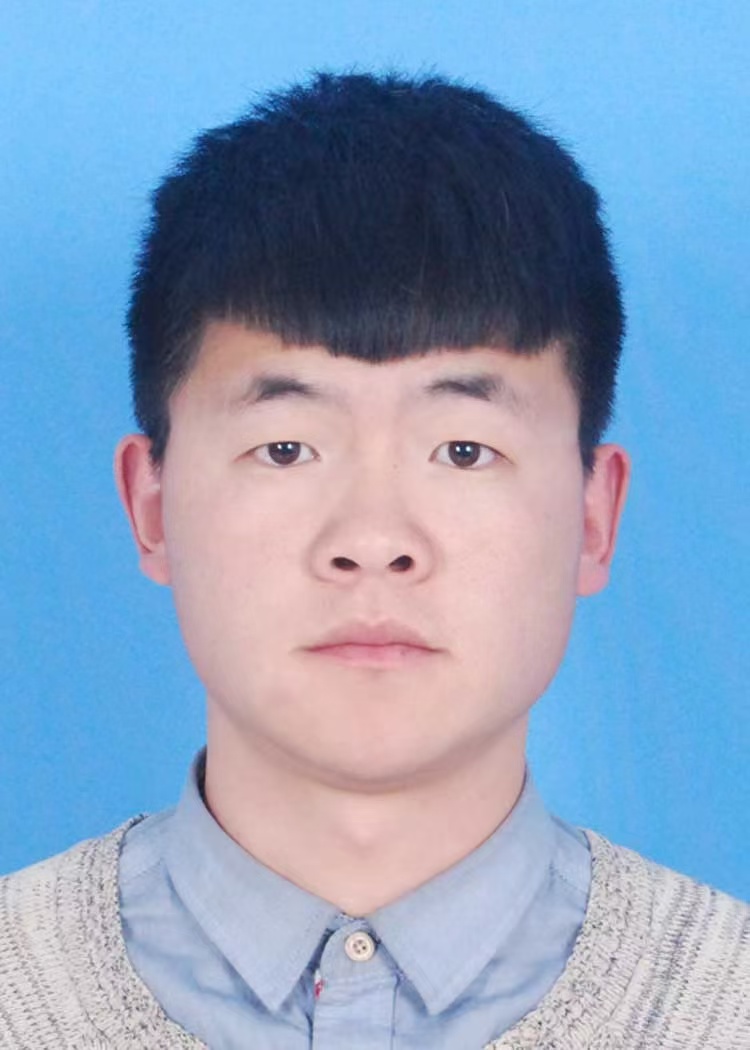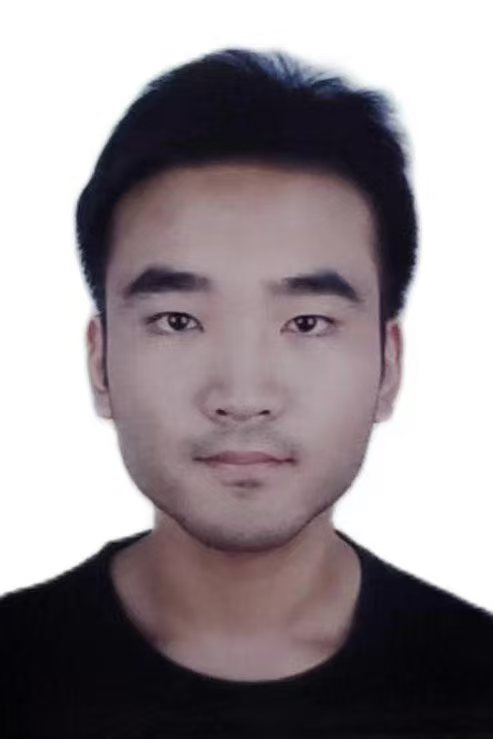Introduction
The VIN Lab (Vehicle Intelligence and New Energy Laboratory) of Tsinghua Intelligent Vehicle Design and Safety (IVDAS) Research Institute (清华大学智能汽车设计与安全性研究中心)is a cutting-edge interdisciplinary platform focus on the strategic needs of future transportation transformation and sustainable development, Which advised by Prof. Jun Li and Prof. Xinyu Zhang. The laboratory consists of more than 60 members, including six groups: the Intelligent Control Group, the Smart Energy Group, the Visual Perception Group, the Fluid and Heat Group, the Flying Car Group, and the Comprehensive Affairs Group. The person responsible for the overall safety of the laboratory is Prof. Yang Shen.
Faculty
Researchers in VIN Lab

Yang Shen received the Ph.D. degree in Mechanical Engineering from China University of Mining & Technology, Beijing, China. He is a member of the Tsinghua Intelligent Vehicle Design and Safety (IVDAS) Research Institute.

Zhengxian Chen received the Ph.D. degree in Mechanical Engineering from Tsinghua University, Beijing, China. He is a member of the Tsinghua Intelligent Vehicle Design and Safety (IVDAS) Research Institute. He has published more than 20 articles as the first author in SCI journals such as Nature Communications.

Huanan Wang received the B.Eng. degree in School of Transportation Science and Engineering, Beihang University, Beijing, China, in 2019. He is currently pursuing the Ph.D. degree in School of Vehicle and Mobility, Tsinghua University, Beijing, China. He is a member of the Tsinghua Intelligent Vehicle Design and Safety (IVDAS) Research Institute and is supervised by Prof. Jun Li.

Yanchao Xu received the B.Eng., Ph.D. degree in Beijing Institute of Technology (BIT), Beijing, China, in 2015 and 2021. He is a member of the Tsinghua Intelligent Vehicle Design and Safety (IVDAS) Research Institute.

Qihang is a master student from National University of Singapore, planning to pursue a doctoral degree in mechanical engineering at Tsinghua University. His research direction is autonomous driving planning and control. Hold positions such as experimental engineer and test engineer in VIN Lab.
Chenggang graduated from Tsinghua University, and his research direction is autonomous driving safety testing technology. Hold positions such as experimental engineer and test engineer in VIN Lab.
Liang Chen graduated from Tsinghua University, major in Chemical Engineering. Now he is in charge of industrial transformation at VIN Lab.
Chenggang graduated from Tsinghua University, and his research direction is autonomous driving safety testing technology. Hold positions such as experimental engineer and test engineer in VIN Lab.
Members / Students
Students in VIN Lab
Visiting student from RWTH Aachen University. His research direction include new energy vehicle planning and control as well as ITS and ICV. He participated in the construction of the team’s ADCP dataset.
Wenjie Ni received the B.E. degree in Automotive Engineering from Wuhan University of Technology, Wuhan, China. He is a member of the Tsinghua Intelligent Vehicle Design and Safety (IVDAS) Research Institute. He has been working in the research team for over one year, contributing to the publication of high-level conference papers and a Nature Communications journal article. He is currently pursuing his Master’s degree at the University of California, Berkeley.
Yuqi Liu is a doctoral student under the guidance of Dr. Zhengxian Chen. He obtained his master degree from Utrecht University and bachelor degree from Beijing Forestry University, specializing in the research of intelligent power systems.
Yikun Liu is a doctoral student under the supervision of Dr. Zhengxian Chen.She is currently in a joint training program with Tsinghua University, focusing on heavy-duty vehicle control, large language models (LLMs), and embodied intelligence. Her research develops algorithms for autonomous driving and explores LLM-robotics integration. She has published several papers and actively contributes to team projects.
Visiting Student from Beijing Institute of Technology. His research direction is hydrogen fuel cell system integration. Established the laboratory’s first vehicle-mounted ammonia cracking platform in the Smart Energy Group, and proposed a machine learning-based fuel cell stack health management model, which has improved the fuel cell life prediction accuracy.
Visiting Student from Beijing Institute of Technology. His research direction is autonomous driving digital twin technology. Built the laboratory’s first coordination digital twin platform, achieving sub-second synchronization between physical scenarios and virtual simulations.
Tianle Wu is a joint doctoral student from the University of Michigan, a core member of the Intelligent Control Group, and has long been engaged in the research of autonomous driving planning and control.
Visiting student from China University of Petroleum (Beijing), recipient of eight national-level white paper awards including first prize in the ISCC National Competition. Admitted to the Shenyang Institute of Automation, Chinese Academy of Sciences through the prestigious early admission program for exceptional undergraduates. His research focuses on visual dynamics. Developed the first image recognition-based vehicle speed prediction model in the Smart Energy Group, significantly reducing the RMSE of speed prediction..
Rui Li is a doctoral student under the guidance of Dr. Zhengxian Chen. He received his master degree from Massachusetts Institute of Technology. He has provided millions of kilometers of virtual road testing services for an automaker’s L4-level vehicle model to ensure the reliability of intelligent driving systems.
Yilin Bai is a doctoral student under the supervision of Dr. Zhengxian Chen. She earned her Master’s degree from the National University of Singapore and her Bachelor’s degree from Beijing University of Technology. Her research focuses on macro-level control of connected and autonomous vehicles (CAVs), operational research, and reinforcement learning. Currently, she is actively engaged in dataset construction to support the team’s work.
Shaoqi Wang is a Visiting Student from Tongji University, majoring in Vehicle Engineering. Her current main research interest lies in planning and control for autonomous driving. She is actively engaged in team projects and gaining hands-on research experience.
Visiting student from the University of New South Wales. His research focuses on vehicle-mounted hydrogen fuel cell system integration and traffic perception. He established the laboratory’s first vehicle-mounted ammonia cracking platform in the Smart Energy Group and proposed a machine learning-based fuel cell stack health management model, which improved the accuracy of fuel cell life prediction.
Visiting Student from University College London, majoring in Mathematics and Statistical Science. His research interests include vehicle trajectory prediction in autonomous driving.
Guo Yangyi is a Second Bachelor’s Degree student in Data Science and Big Data Technology at China Agricultural University, holding a Bachelor’s in Mechanical Design, Manufacturing, and Automation from North China Institute of Science and Technology. His research focuses on robot vision perception and intelligent system optimization, with hands-on experience in industrial big data applications.
Huiming Jiang, a visiting student majoring in Internet of Things Engineering at Beijing University of Posts and Telecommunications, whose main research direction is vehicle speed prediction based on intelligent transportation information, and currently focuses on the innovative research and application of LSTM models.
A visiting student from Southwest Jiaotong University, majoring in Computer Science and Technology. His research interests include vehicle speed prediction and model optimization in autonomous driving. Currently, he has joined the intelligent driving project team and is dedicated to gaining more practical experience.
Xun Hu is a Joint Training Student from Southwest Jiaotong University, majoring in Computer Science and Technology. His current research focuses on speed prediction for autonomous driving. He is actively engaged in team projects, gaining hands-on research experience.
Guo Yangyi is a Second Bachelor’s Degree student in Data Science and Big Data Technology at China Agricultural University, holding a Bachelor’s in Mechanical Design, Manufacturing, and Automation from North China Institute of Science and Technology. His research focuses on robot vision perception and intelligent system optimization, with hands-on experience in industrial big data applications.
Chenggang Zhang is a Visiting Student from Chang’an University, majoring in Automotive Engineering. His research interests include vehicle track prediction in autonomous driving and energy management strategies of hybrid vehicle.
Visiting student from the University of New South Wales. His research focuses on vehicle-mounted hydrogen fuel cell system integration and traffic perception. He established the laboratory’s first vehicle-mounted ammonia cracking platform in the Smart Energy Group and proposed a machine learning-based fuel cell stack health management model, which improved the accuracy of fuel cell life prediction.
Alumni
Proud VIN Labor